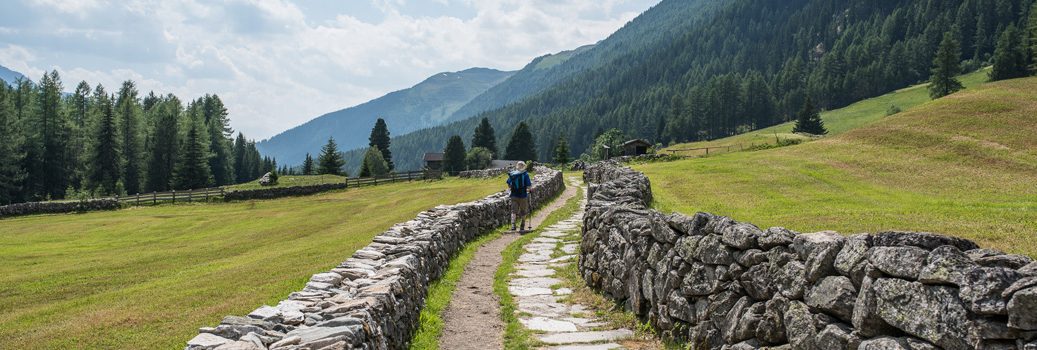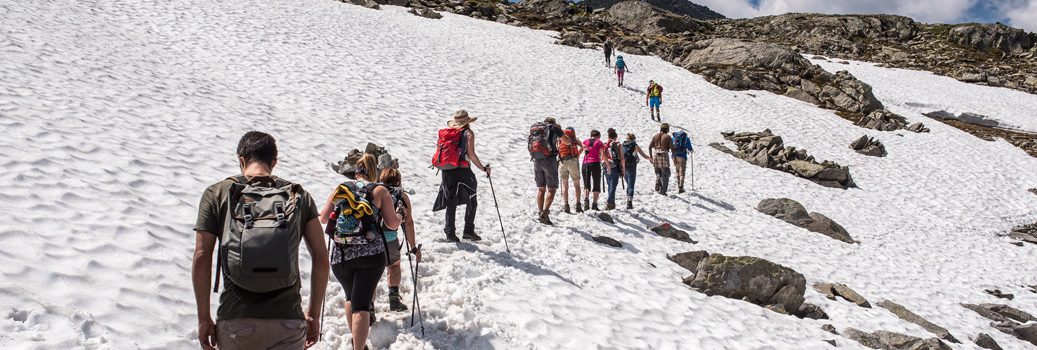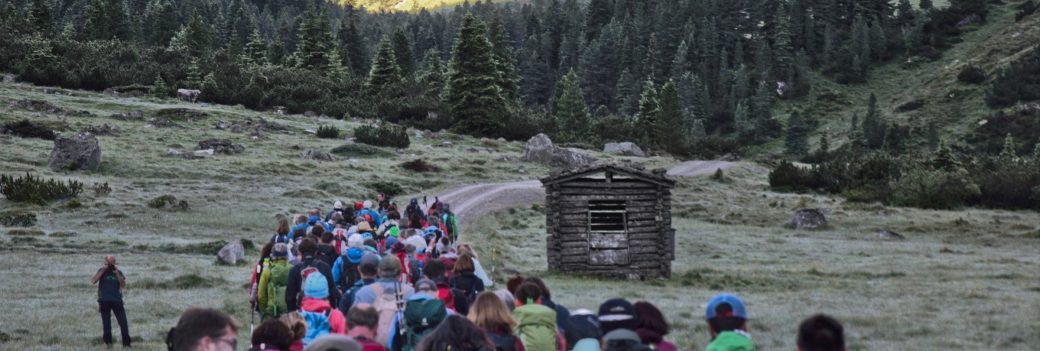The APC Peace Award was established in 2019 to give special recognition to those people who have made lasting contributions to APC’s priority areas. Due to Corona, APC events could not take place last year, so the 2020 Peace Award for Regine Kappeler and Alois Steger will be presented at the 15th APC in Krimml on June 25, 2021. The 2021 awards for Gal and Uzi Talit will be presented – also to honor their parents, who had been exemplary in the Givat Avoda camp – at the separate ceremony in Saalfelden, scheduled for the morning of June 25, 2021.
A tribute to the award winners by Ernst Löschner
It is a great honor for me to recognize the four personalities here individually, because they have all been closely associated with me and the goals of APC from the very beginning and have contributed very significantly to the development of APC.
Regine Kappeler
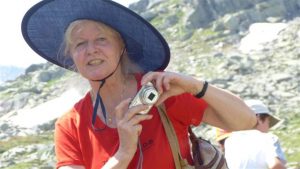
The commitment of the articulate pedagogue Regine Kappeler to refugees is as exemplary as it is diverse. She has the special gift of discreet empathic attention that radiates trust and that conveys a sense of security. Although she did not receive any specific psychological training, she was able to bring about a catharsis in many of her “protégés”, helping them to overcome their traumas.
Regine, born in 1944, grew up in Mittersill and, despite many stays abroad, always remained closely connected to the Pinzgau region. After graduating from high school in Salzburg, she came to study languages first at the University of Vienna and then, in the early 1970s, at the University of Zurich, where she earned licentiate (diploma) degrees in French, Chinese and Russian. She taught all three languages as a high school teacher in Switzerland.
A new – and later also for APC particularly important – sphere of activity arose in Vienna from 1998, when Regine docked as a German teacher in the refugee home Ute Bock. What began with a few German lessons for refugee Chechens and Africans expanded over the years into a life’s work. Her work was not limited to language lessons, but she accompanied her protégés when they went to the authorities, to psychotherapy or to the hospital, she wrote letters of recommendation for them and helped them write letters or resumes. For many, Regine is the only Austrian they know well and trust.
In Krimml she supported in an inimitable way my plan that APC should not only commemorate the refugees of 1947: The refugees of today should also have their say. Thus, the Windbachalm – as the first stop on the annual APC Peace Hike – became a traditional focus of our engagement: Regine came every year from 2009 onwards with 10 to 20 young refugees from all over the world, some of whom told of their personal experiences of flight, sensitively moderated by Regine.
The APC Peace Award 2020 honors Regine as a person and organizer who has played a decisive role in ensuring that the refugees she has cared for at APC have always felt accepted as part of a group of Austrians who show them care and understanding.
Alois (Lois) Steger

Lois always walked barefoot to meet us, every year since the first APC Peace Hike in 2007. This was his way of “commemorating the picking up of the Jewish refugees”. There has been only one year (2013) when we had to cancel the crossing of the Krimmler Tauern due to heavy snowfall. Lois, however, did not let himself be dissuaded and nevertheless came to meet us as far as the Windbachalm from Kasern, barefoot of course.
Only afterwards had we learned that in 1997, 10 years before the founding of APC, Lois, together with other artists, had organized the South Tyrolean project “überGehen”, to commemorate the 50th anniversary of the flight of 1947. This project not only included a night hike by a few undaunted people in cold, wet weather from Kasern to the Krimmler Tauern, it was above all an outdoor installation of artworks, to which Lois had impressively designed 50 whitewashed mountain boots on high poles.
The landscape for this “walk” was his own: he grew up, born in 1956, in Kasern and still lives in the Ahrntal. Lois had been trained as a sculptor at the Art School of Val Gardena and then taught at the sculpture schools of St. Jakob and Bruneck before being appointed as a guest lecturer at the Technical University of Munich and founding the art association KUNSTMYST in 1995. Today, as then, he works as an artist and organizer of exhibitions in South Tyrol, Germany and Austria, as well as an enthusiastic alpinist and mountain guide, especially in his homeland.
For me, it has become an impressive tradition for all participants of the annual APC peace hike to experience Lois at the apex of the crossing – i.e. directly at the Krimmler Tauern Pass at 2,634 meters – as he describes the historical events of 1947 from the South Tyrolean perspective. He has become the personified bridge for APC, not only between the Krimmler Achental and the villages in the Ahrntal: for us, he has become a symbol of understanding across all borders.
Gal and Uzi Talit
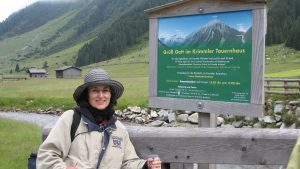
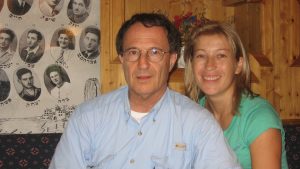
The new board of APC has come to know and appreciate – as I did in the 13 years before – the conscientiousness, reliability and organizational talent of Gal Talit. So it became a beautiful joint decision when it came to selecting individuals for the 2021 APC Peace Prize.
The founding of APC has brought about a re-membering of the “Jewish Flight” of 1947. How much this affected the family fates of the eyewitnesses was only made clear to us by numerous reports from their descendants: It was like a dam burst that enabled the eyewitnesses to let their children and grandchildren share their own traumatic experiences of the Shoa for the first time.
It was no different for Gal and Uzi Talit, although they were aware that Saalfelden had left a lasting mark on the lives of their parents Bilha and Moshe Talit like no other place in the world. They had both been active in decisive positions in Givat Avoda and had been in military service immediately after the founding of the State of Israel in 1948.
Son Uzi was born in 1949; Gal was born in 1961. Both came with their parents to Saalfelden and Krimml for the first APC in 2007. For Bilha it was like a last wish to return once more to her place of work in the former camp in Saalfelden. A few weeks later she passed away.
Uzi Talit has been living in the USA as a cardiologist for over 30 years. He completed his medical studies – after the obligatory 3-year military service in Israel – in Rome “summa cum laude”, and then practiced as a young internist in the main hospital of Tel Aviv. After his retirement, Uzi continues to be active as a cardiac specialist, now primarily for indigent patients, whom he serves free of charge. His many interests include photography and aviation: he holds a pilot’s license for small aircraft and is currently working on the development of a professional flight simulator.
It is impossible to imagine our APC events without Uzi; there has not been a single year in which he has not participated in our celebrations in Krimml or in Israel (as early as 2007, when we visited the legendary Bricha personalities Asher Ben Natan and Aba Gefen, or in 2017 for the 70th anniversary commemoration of the Jewish exodus). He also went through his father’s photo archive and provided us with photos of inestimable value, especially about camp life in Givat Avoda.
His younger sister Gal is our indispensable bridgehead in Israel. It is also thanks to her that APC has gained an international standing today, as well as the successful implementation of our two student exchange programs (2010 and 2013) between HTL Saalfelden and schools in Israel.
Gal Talit worked for many years as a regional and urban planner (she holds a PhD in Public Policy) in Tel Aviv. She is currently involved in university research and teaching, and also serves as a government commissioner for municipal jurisdictions.
Of crucial importance to us has been her organizational work (since the 1st APC in 2007) for the participation of the first, second and third generations of contemporary witnesses in the annual APC events. For these events, she has often designed her own T-shirt for the participants and in this way also helped to create a sense of belonging together with Austrians.




